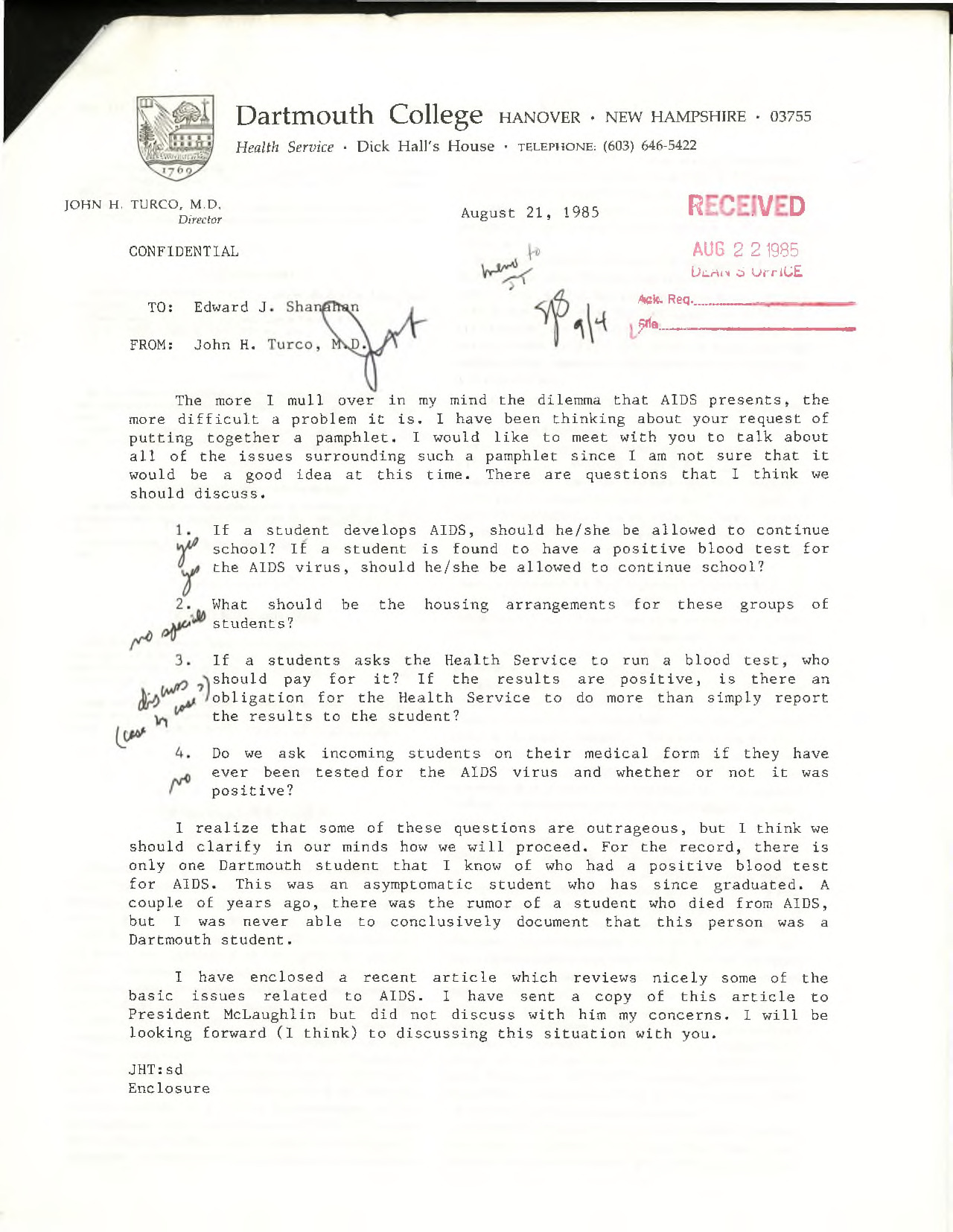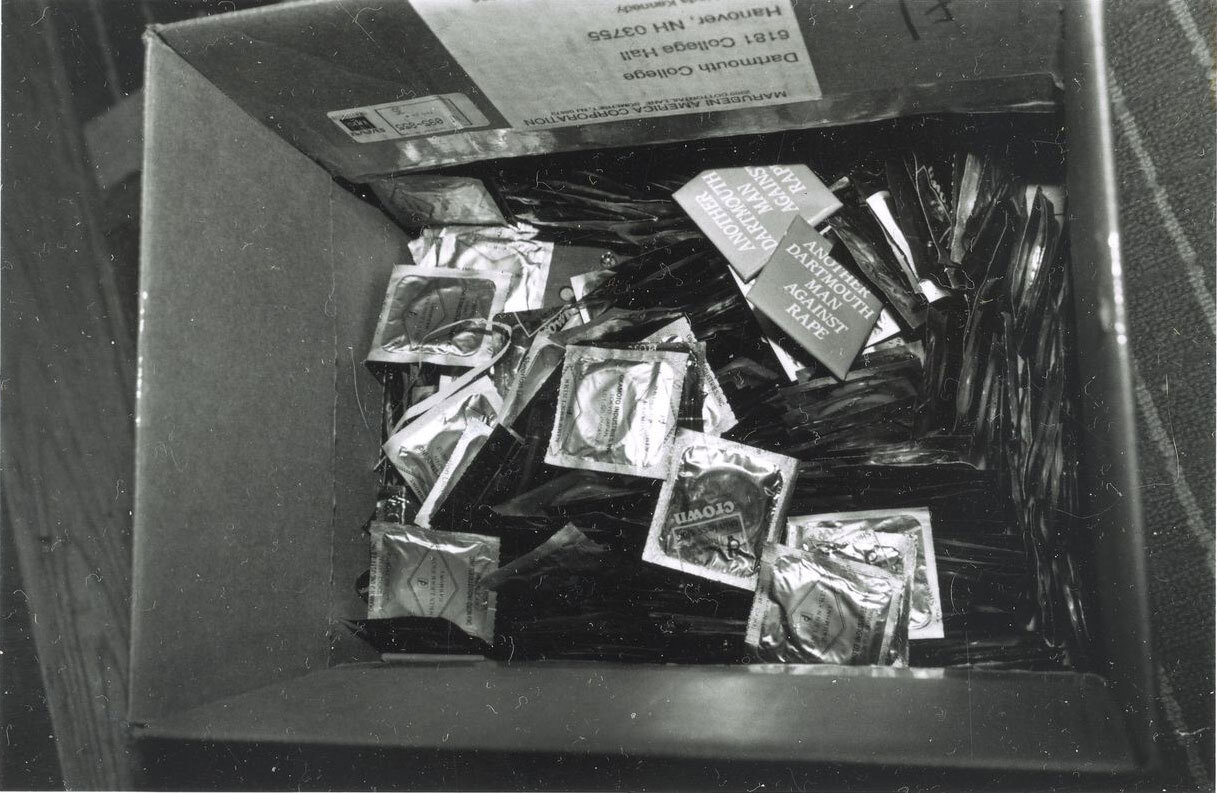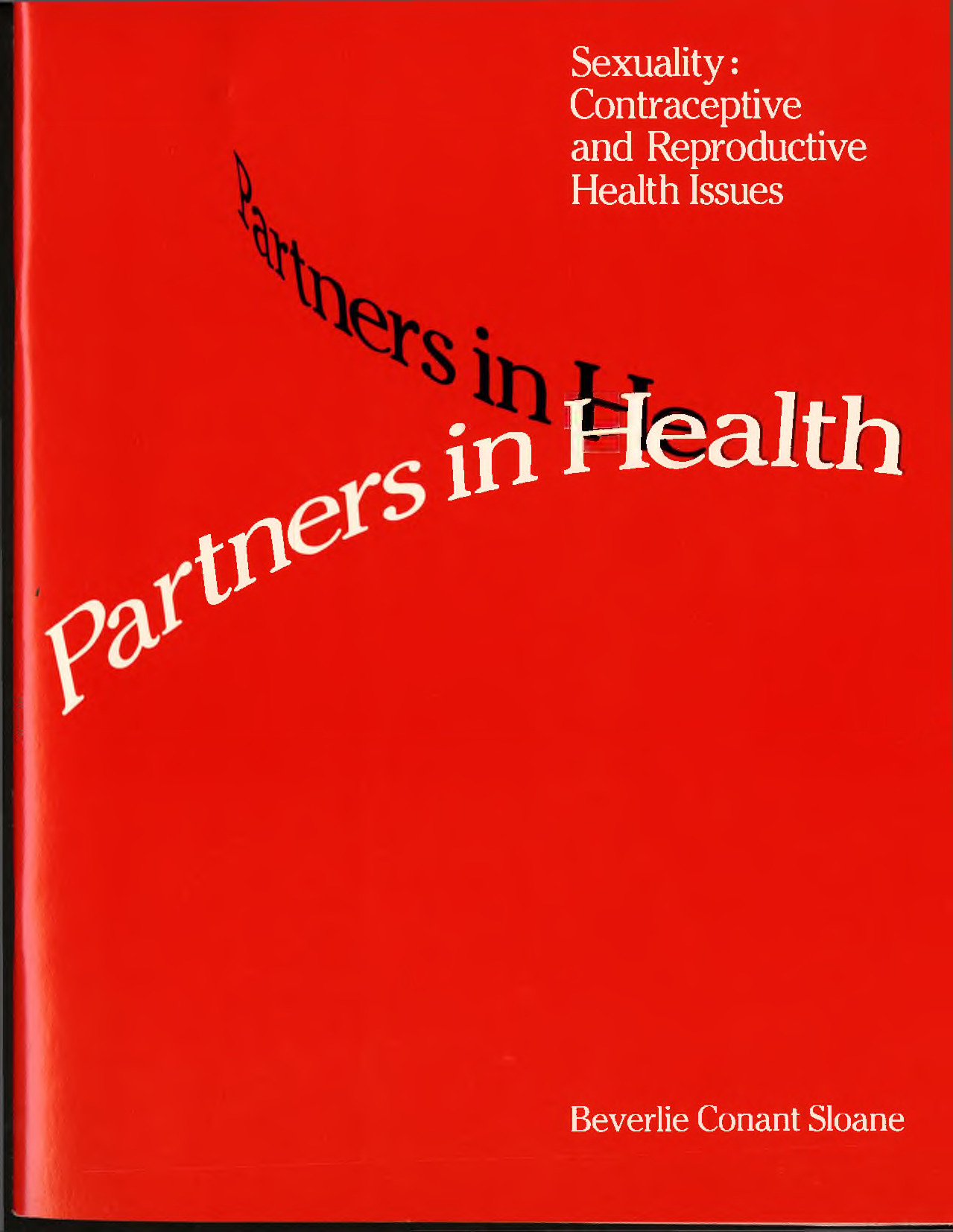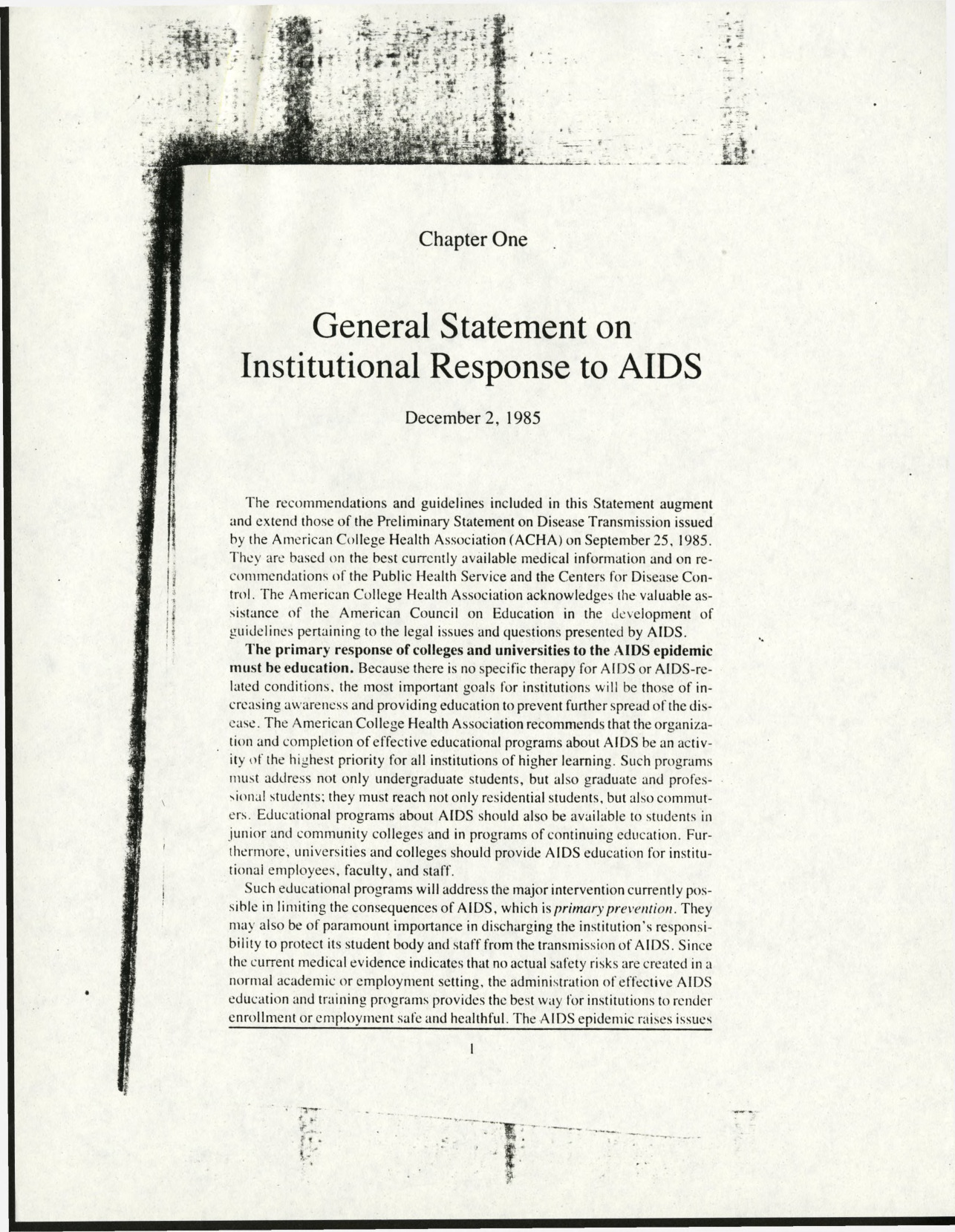Early Concerns and Sex Education
At Dartmouth, the first mention of AIDS in administrative records was from a Health Services memo in 1983, where the disease was mentioned as one of many potential seminar topics.2 However, as AIDS progressed to epidemic status, increasingly urgent messaging from the American College Health Association (ACHA) and Surgeon General C. Everett Koop (a member of the Dartmouth class of 1937) implicated universities as high-risk communities where AIDS could spread. College students at this time were frequently having unprotected sex, often with multiple partners. These risky sexual practices, combined with the belief that AIDS was solely a concern for gay men, raised unease from college health administrators around the country.
"The more I mull over in my mind the dilemma that AIDS presents, the more difficult a problem it is..."
Dr. Jack Turco, director of the College Health Service at Dick’s House, began discussions around AIDS in earnest in the spring of 1985. An early memo by Dr. Turco to Dean of the College Ed Shanahan presciently opens with "the more I mull over in my mind the dillema that AIDS presents, the more difficult a problem it is..." The memo went on to raise questions about whether a student who tested positive should be housed in the general dormitories, or allowed to continue classes. In both cases, Shanahan asserted that students with AIDS should not be singled out or discriminated against.
Another key topic of concern was the testing itself: who should pay for it, whether incoming students should be tested, and whether mandatory testing should be implemented. The College ultimately chose not to mandate testing, neither for incoming students nor current ones. Eventually, the College formed a task force with Dr. Turco and Dean Shanahan, as well as representatives from the medical school, Tuck, and other Parkhurst officials. The task force largely deferred to ACHA policy, which stressed a comprehensive educational program as the best preventative measure.
At the time, Dick's House already had set a precedent of progressive sex education programming at the College. This effort was largely led by Beverlie Conant Sloane, the director of the Health Education department in the Health Service. Informational brochures and publications were made available to students, covering topics such as contraception, sexually transmitted infections, and the choice to become sexually active. Conant Sloane's book Partners In Health was especially successful — its "honest and explicit, but non-judgemental" tone and candid detail later won Conant Sloane an award for excellence in academic journalism.
Additionally, Dick's House was the first Ivy League health service to provide free condoms. In an interview with Leeza Petrov, Dr. Turco recalled the state of campus during this time: "There were condoms everywhere." Condoms could be found in Dick's House, in the library, in the dining hall, and briefly in dormitories via students who served as volunteer Health Aides. Although many condoms were provided, Dr. Turco remembers that most students did not take contraception and safer sex seriously.
Conant Sloane later wrote in her paper "What College Students Need to know about AIDS" that most Dartmouth students were initially apathetic and ignorant about the disease. A notable exception was the Gay Students' Association (GSA), whose members did raise concern about AIDS. Dick's House held a few informational forums to address this need, but they were sparsely attended by any students outside of the gay community.
_______________________
2 Gilles, Neil. “Dick’s House Memo,” September 1983. DA-667, Box 10432, “Health Education 1981-82 Health Service Subject Files.” Dartmouth College, Health Services Records. Rauner Special Collections Library, Hanover, NH.
From the Archives
Click on an image to access the full document, audio-visual components, and/or metadata associated with that item.

In this summer 1985 memo from Jack Turco to Dean Ed Shanahan, Dr. Turco discussed his initial concerns and thoughts in the College's upcoming response to the AIDS epidemic.
 Historical Accountability Student Research Program
Historical Accountability Student Research Program


